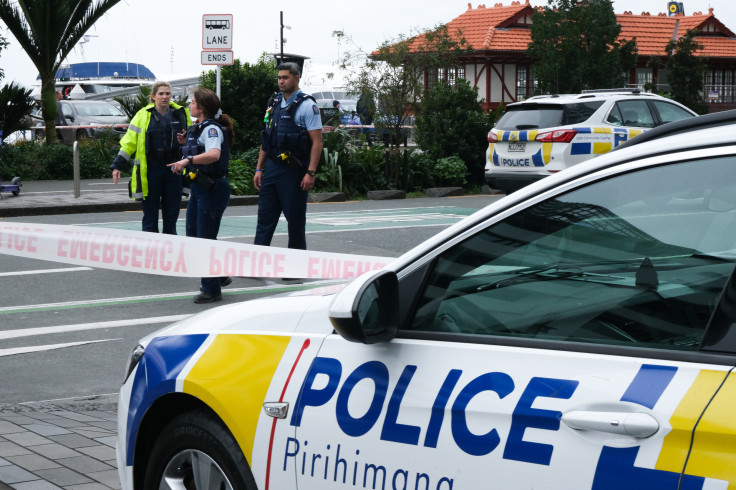New Zealand Bans Gang Symbols, First Bust Comes 3 Minutes After Law Goes Into Effect
The law does not cover white supremacist symbols like swastikas

A man was arrested for showing a Mongrel Mob sign three minutes after New Zealand enacted a law banning gang symbols.
In an effort to curb gang violence, New Zealand has enacted a law banning the display of gang symbols on clothing and vehicles in public.
The law went into effect on Thursday, and within three minutes, the first arrest was made in Hastings, according to the Associated Press.
The unnamed driver had a gang emblem on the car's dashboard which prompted the arrest Police Commissioner Richard Chambers told 1News.
"The free ride for gangs is over," said Paul Goldsmith, the minister of justice, told the Guardian. "Gangs in our country think they're above the law and can choose which laws they comply with, and this government does not accept that."
Under the law, individuals wearing or showing symbols from 35 designated gangs now face fines between $2,940 and $5,000 or up to six months of imprisonment. However, the law does not cover white supremacist symbols like swastikas.
New Zealand has a rampant gang problem with links to violent and drug-related offenses.
The law is part of broader measures by the center-right government to deter public gatherings and restrict gang members from associating with each other throughout New Zealand.
"Gangs aren't community groups," Prime Minister Christopher Luxon wrote on X. "They're not a Rotary club. They thrive on destroying the lives of other New Zealanders, whether that's by peddling drugs or through brutal acts of violence that leave communities in fear."
At midnight tonight, a raft of tough new laws will take effect.
— Christopher Luxon (@chrisluxonmp) November 20, 2024
Gang insignia will be banned in all public places, courts will be able to issue non-consorting orders, and police will be able to stop criminal gang members from associating and communicating.
Greater weight will...
Officials hope the measures will shrink the number of people joining gangs.
Critics argue the law infringes on the civil liberties of the Māori community, possibly breaching the Bill of Rights since they disproportionately represent the country's gang population, according to the Associated Press.
Recently, thousands marched to Parliament to protest the government's drafted bill that redefines the Treaty of Waitangi.
Last week, New Zealand lawmakers exploded in a haka chant on the Parliament floor in opposition of the bill.
The new policy reflects a shift towards stricter gang control similar to Australia, which was part of a global crime sting thwarted by the Federal Bureau of Investigations where hundreds were arrested.
In October, Australia's Northern Territory enacted a new law where children as young as 10 years old can be jailed for crimes.
It’s midnight. Gang members are now officially banned from wearing their patches in public.
© Copyright IBTimes 2024. All rights reserved.





















